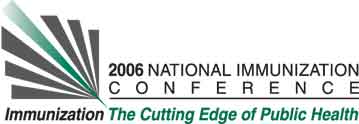David Bibus, Krista Rietberg, Lauren Greenfield, Betsy Hubbard, Julie Nugent-Carney, and Jeffrey Duchin. Communicable Disease, Epidemiology and Immunizations, Public Health-Seattle & King County, 999 3rd Avenue, Suite 500, Seattle, WA, USA
Learning Objectives for this Presentation:
By the end of the presentation participants will be able to:
1. Identify factors contributing to vaccine-specific safety concerns and vaccine hesitancy among parents of infants and young children.
2. Identify strategies for individual health care practitioners and public health agencies to address vaccine hesitancy in their communities.
Background:
Physicians often encounter parents who either selectively vaccinate their children or refuse all recommended immunizations. Vaccine safety continues to receive a high level of media coverage and is considered a primary reason for parent refusal. A plan to address vaccine hesitancy is needed in order to respond to parents with vaccine questions and assist practitioners who interact with parents. We convened a forum of local stakeholders to develop priorities for further immunization program activities in this area.
Setting:
Public Health – Seattle & King County sponsored the Experts Forum on Vaccine Hesitancy. The Forum was held at a Seattle-based community health center.
Population:
Pediatricians, family practice physicians, naturopathic physicians, and public health staff who have knowledge of vaccine hesitancy and are in leadership roles in their communities.
Project Description:
A focus group format was used in conducting the Experts Forum with health care practitioners. Public Health staff facilitated the discussion using a structured set of questions.
Results/Lessons Learned:
The Experts Forum identified multiple factors contributing to vaccine hesitancy and priority issues for health care practitioners working with vaccine hesitant parents. Suggested action items include: 1) Additional study of vaccine hesitancy to improve understanding of the contributing factors; 2) Develop a system with resources for clinicians on vaccine hesitancy and a forum for information exchange; 3) Develop and disseminate risk communication strategies and training focused on immunization issues for clinicians; 4) Develop and evaluate educational programs for vaccine-hesitant parents; 5) Promote more effective evidence-based public communications about immunizations with the media; 6) Continue communication and outreach with complementary health practitioners.
See more of Understanding and Responding to Vaccine Hesitant Parents
See more of The 40th National Immunization Conference (NIC)

